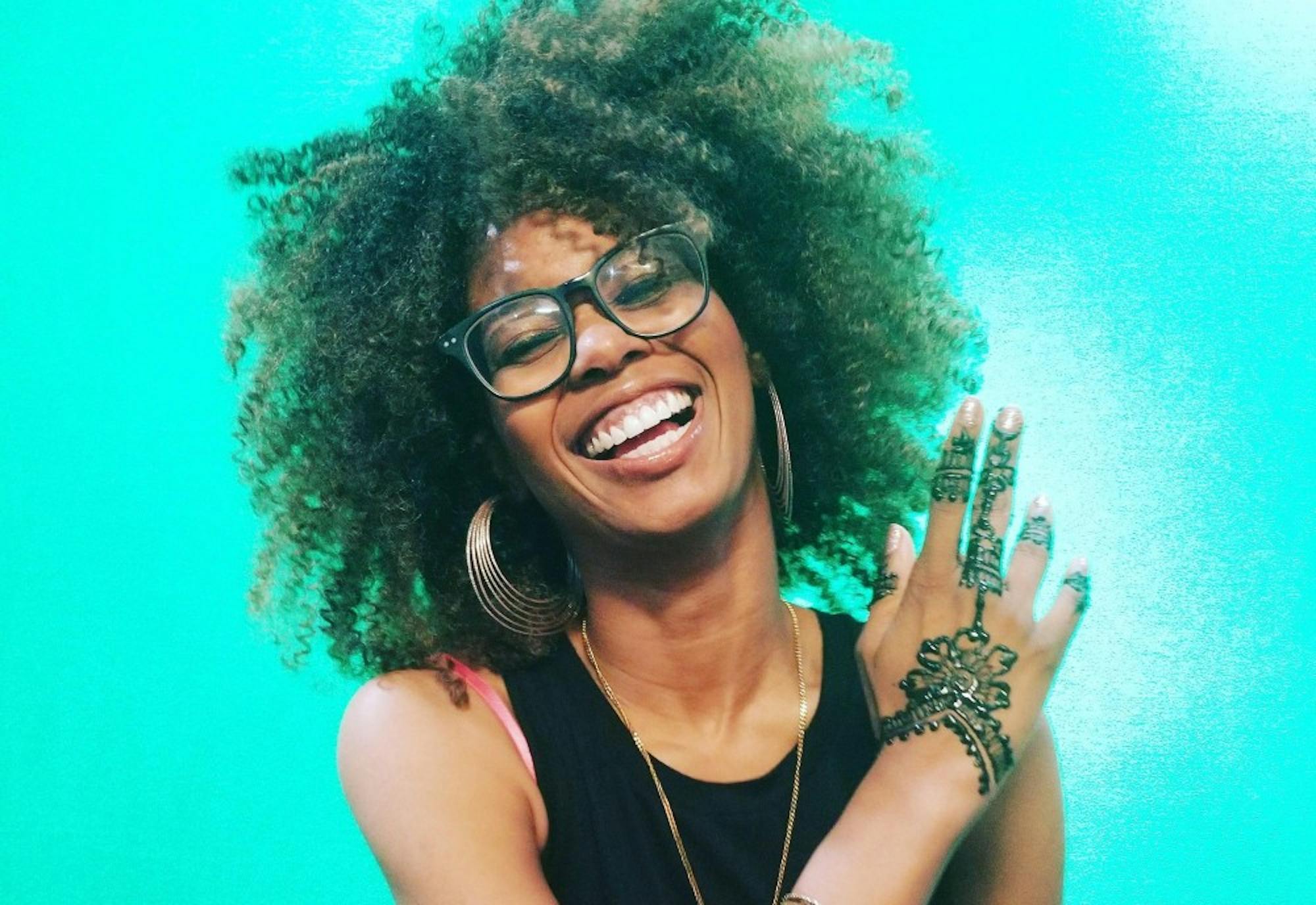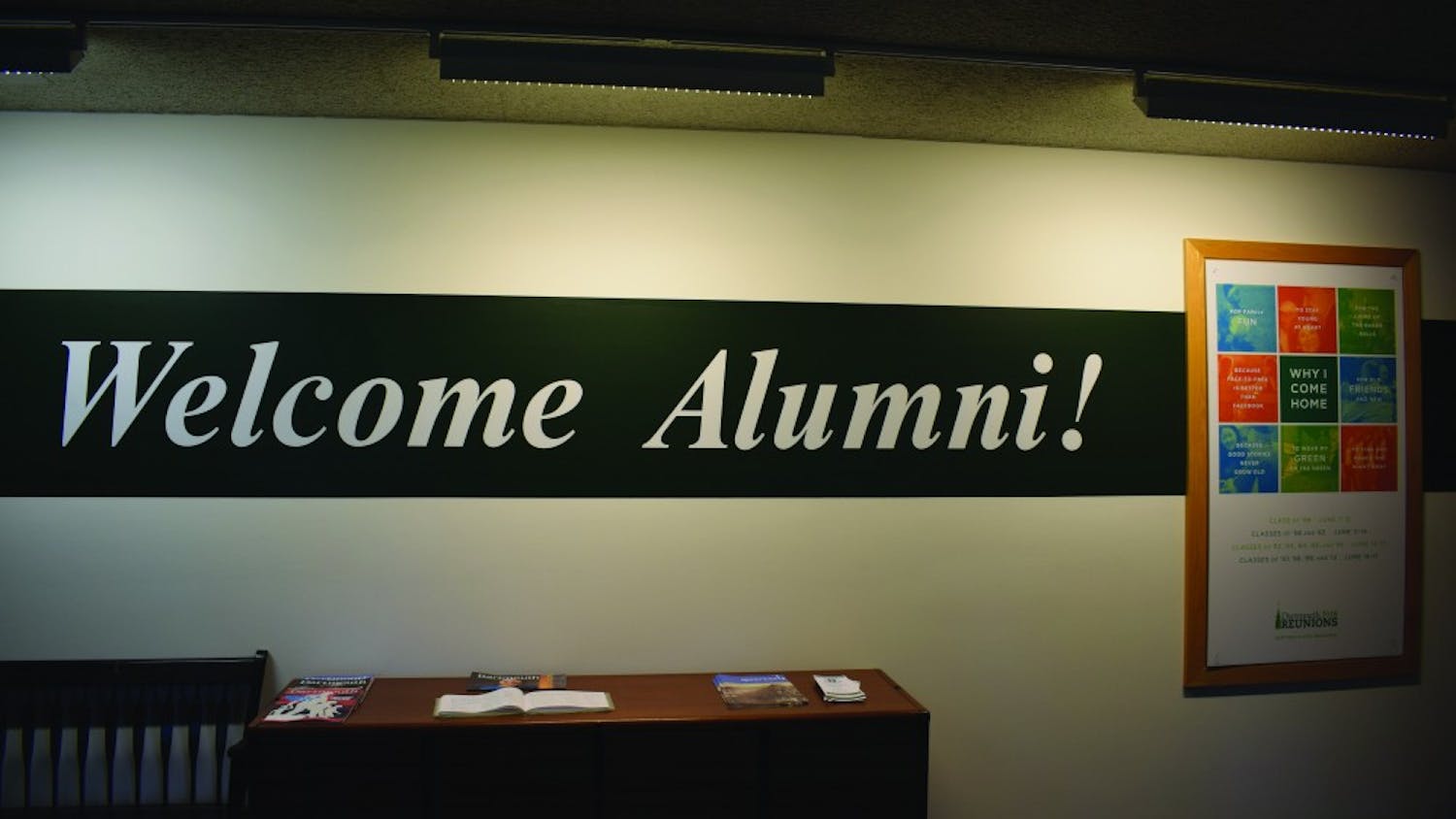Shamell Bell, an original member of the Black Lives Matter movement, brings forth her experience as a community organizer and advocate for black activism as a lecturer in the African and African American studies and theater departments. She is currently teaching THEA 1, “Introduction to Theater” and THEA 21, “Race, Gender and Performance.”
In her career as an activist, Bell’s participation as a leader in the Black Lives Matter movement was a pivotal moment that cemented her desire to guide students and her peers to participate in the activism that they are passionate about. Bell’s work as a self-described arts and culture liaison for social justice organizations and a community engagement consultant has shaped her belief that art could hold the power to resist and liberate. With her history in activism, Bell brings a variety of experiences and expertise to her classrooms.
In an interview with The Dartmouth, Bell discussed her experience as a leader of the BLM movement and how her activism has shaped her role as a teacher.
What brought you to Dartmouth?
SB: I came here around one year ago for the International Black Theater Summit, and I presented the movie “The Hate U Give.” I did a talk-back with a little panel afterwards for the film and fell in love with some of the students. And then I said, “Oh, I’m going to figure out a way to come back.” Theater professor Laura Edmondson called me and said, “Can you teach a couple of courses in theater?” And then how fate would have it, the African and African American studies department asked me if I could teach three courses here. I’m only one month in, and Dartmouth has just been a robust way for me to highlight my artistic and academic profile.
How did you become involved in the Black Lives Matter movement, and how did that influence the trajectory of your career as an activist and as a teacher?
SB: Although I was sick with an autoimmune disease and was unable to get on the bus to Ferguson, Ferguson activists are what created an international movement and influenced my life, because I was able to be a part of something bigger than myself. And for me, this is something that is really key in my life. I had purpose before BLM and I’ll have purpose after BLM, but BLM was a moment in my trajectory where I wanted to support my community in all the ways that I could.
I think it’s cool right now to be an activist, but I kind of distance myself from that term — I’m more of a community organizer. And I’ve been organizing in the community since I was 10 years old, so for me, being a part of BLM made sense because it’s something in that trajectory. Whether we’re on the front lines or whether we’re teaching in a classroom, if we live everyday for the liberation of our people — that’s the movement. That’s what I want to use as a guiding light to others: that you don’t have to be a leader of a movement to be an activist.
What brought you to select street dance activism as the subject of your dissertation?
SB: I was already doing work on dance in the community as a form of mobilization or activism, but it wasn’t until being on the ground of the BLM movement, where street dance activism became a thing. I just said those words when I was trying to get people to come and get a free dance class — it was like “street dance!” and “activism!” and it kind of stuck, and more and more people started to want to use street dance as interventions. At the time I just said, “I want to give back with what I know.” I wanted to make sure that whatever I spoke to in my dissertation spoke directly to my community and the things that I’ve lived and I’ve experienced, and so I had to write about street dance activism.
What has been a moment that cemented the importance of social justice and performing arts for you personally?
SB: I think it was the first time I did the street dance activism in the Los Angeles Police Department headquarters. It was this one moment where the energy was so low, and it just felt like a cloud of heaviness around us. There was this moment when we started to dance that the cops came out, and they were so confused that there was joy in that moment. They crossed their arms and scowled at us in a different way, because they couldn’t really wrap their heads around how we were being joyful. Like it was almost as if our joy was more annoying than our sorrow. That was the moment I knew the power that art could do, and it showed me that our living was the resistance.
Why did you use a combination of written text and film as the medium to convey your dissertation?
SB: I chose to use film because it was my way of giving back to my community and making it available to my community. I needed to have it live — and not just in written form. As someone that is a dancer and choreographer, everything is a choreography for me, and it’s often difficult to even articulate in words what I’m feeling and what I’m seeing in my imagination. So to me it was a no-brainer. It’s difficult to be in academia, where you’re just expected to publish or perish. As I’m coming into academia now, I’m finding ways to ground myself in the written as well as feed my need for being multi-disciplinary and being someone who uses the digital humanities as a way of connecting to my social engagement.
How has your dissertation research affected what you bring to your lectures at Dartmouth?
SB: I use my work as a roadmap in my classroom, and I use it as a way to help guide my students. I always bring in a little bit of my written as well as my visual and bodied experience, and my students really asked me a lot of questions about this. It’s like, “How do you do all the things all the time?” And I told them it’s a privilege for me to be an academic, because not every night at 5 p.m. would you be able to say you’re a dancer, choreographer, filmmaker and mom. Now, many people think that they could do it as well, but that’s kind of what I push out of my students. Given what my lived experience is, hopefully I can be a light to others.
How does teaching differ from actively working on social justice issues?
SB: It doesn’t differ for me at all. I don’t really call myself a teacher. I’m more of a facilitator, and I hate to use the word “healer” because that’s kind of cliché these days, but I go on a journey of healing with my students, and that’s what’s most important to me — I kind of unearth what’s already inside of them and the answers that they already know and value.
Can you describe what your role in the process of consulting social justice impact in television and film looks like?
SB: I have a lot of education on the history of different social and arts movements, so I became a wealth of knowledge for the TV, film and music industries. I’ve gotten very comfortable with the entertainment industry as I have performed since I was two years old. I am not really the type of person to want to be a performer anymore, but I choreograph, facilitate and consult. For me, I use my privilege as a way and as a bridge to use the platform for good. I think that’s what I do in the entertainment industry, knowing that it can reach the masses — if I could get someone with influence to know even just a little bit of something that can shift the minds of others, I want to be in the position to do that.
How has teaching at Dartmouth differed from your past teaching experiences in California?
SB: I think it is the sense of perfection. I think Dartmouth students are so bright and so intelligent and so “the one percent” in their environments that they feel a lot of pressure — they feel a pressure to be all and everything for everyone and be everywhere at all times and be omni-present. And it’s not in a bad way. I just want to crack them open so that they can get to the core of who they really are, and what they really want, and how they can use their intelligence and their talents to not only better their own life, but better the lives of others. And for me, I’m in love with them, because I see the value of knowing their privilege. That’s the thing. They know they are privileged as Ivy League students. And what is incredible about the students that I’ve encountered is that they’re ready and willing to be able to use that privilege for good.
This interview has been edited and condensed for clarity and length.




